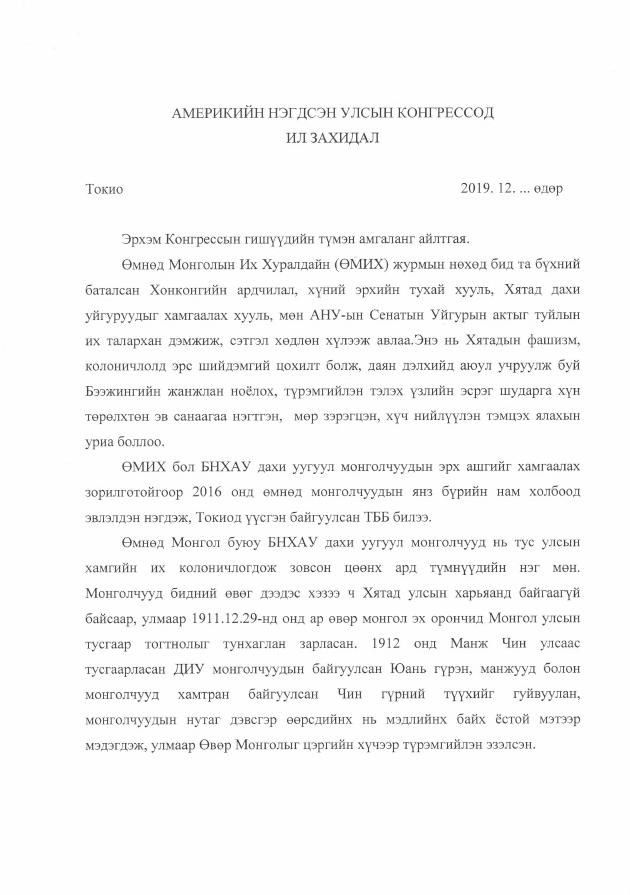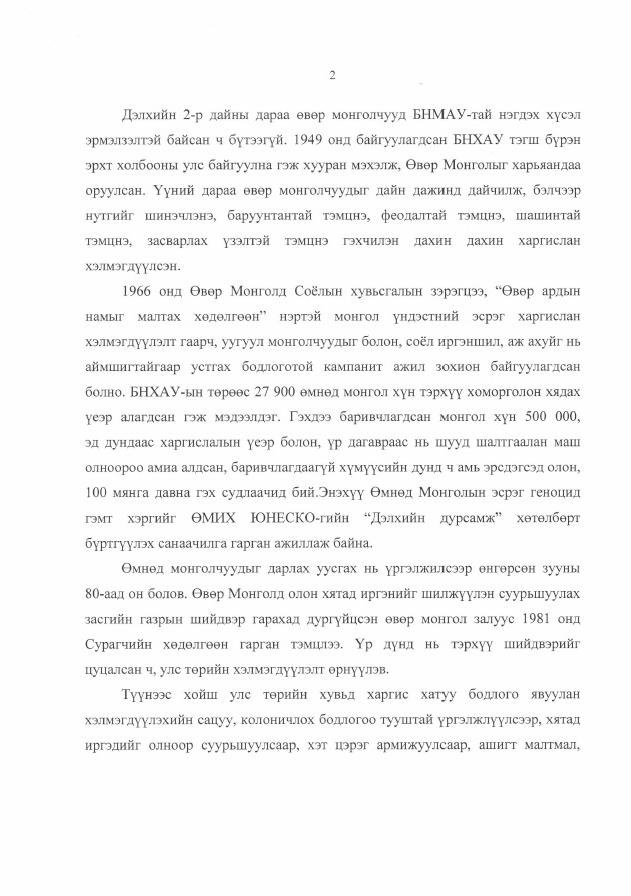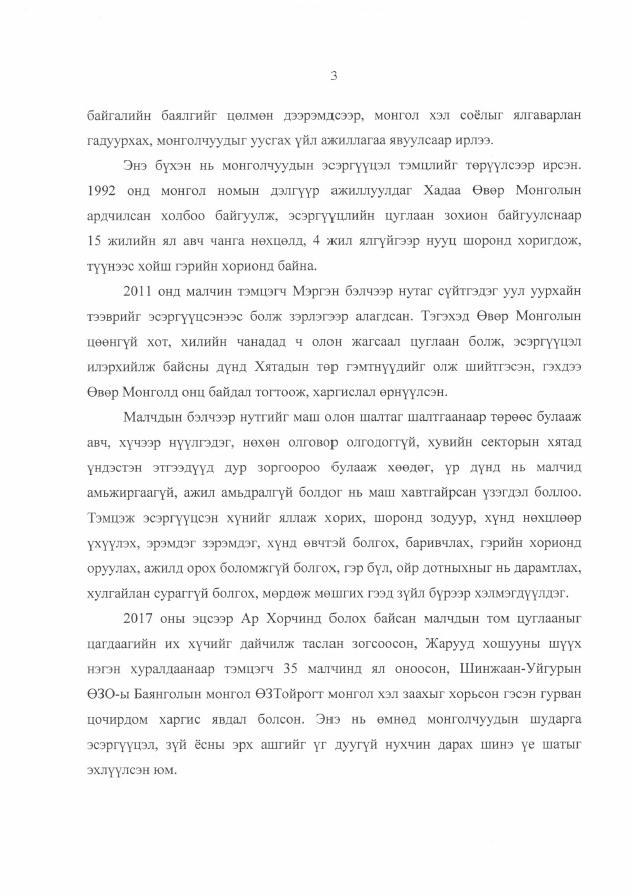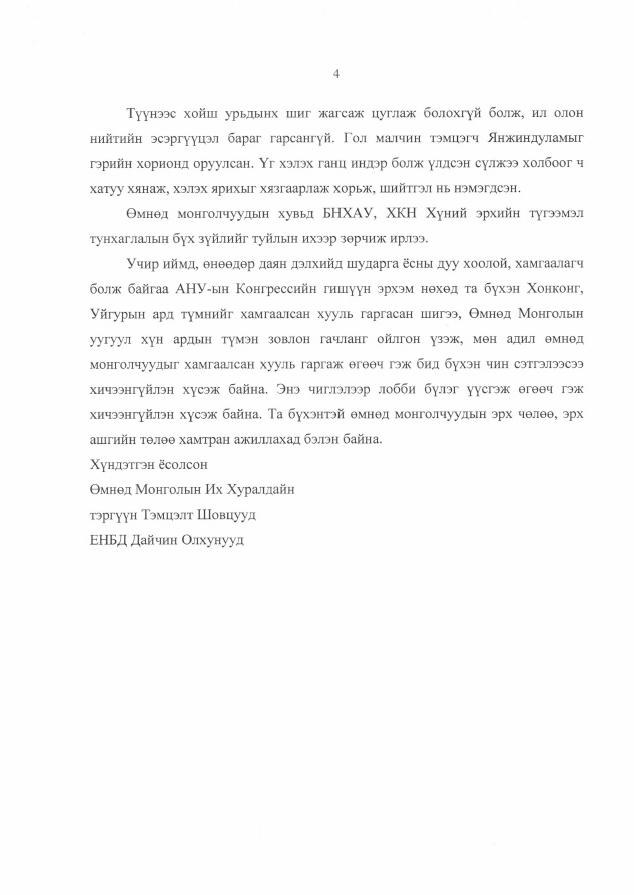China earned ill fame as a State which unmercifully oppresses ethnic and religious minorities. Many people heard about persecutions of Uyghur and Hui Muslims in Xinjiang Uyghur and Ningxia Hui autonomous regions and Qinghai province and Buddhists in Tibet, or subjection of Hong Kong 'terrorism riots.' But very few is aware of the South or Inner Mongolia problem.
The White House is persisting in its defiance of this issue. Presidential Administration and United States Congress are fine with an image of backward nomads grateful to their Chinese communist brothers for given blessings of civilization and gladly perceived to be a part of an enormous great country.
Before joining PRC, a future Mongolic autonomous region had been populated with a small number of ignorant herders spread over a wide area which is bigger than France. It is generally thought that it were Chinese (or the Hans) that brought education, culture and development there. The Chinese leadership asserts that a Mongolic autonomous region is provided with broad autonomy and sovereignty over all issues and matters of the territory. Meanwhile, Mongolic people of the region have been constantly exposed to reprisals. They are deprived of their freedom of speech and forced to claim their rights from outside the country.
Recently, Congress of the USA received a petition in Mongolian of non-governmental organization Congress of Southern Mongolia established in Tokyo, in 2016.




It highlights a Beijing systematic campaign of Mongol cultural genocide, since 1966. The number of Southern Mongolianss who died during repressions by Chinese leadership is variously estimated at from 27,900 to 100,000. Those malcontents with PRC policies become political prisoners. They are held in abysmal conditions, where they die or become crippled or gravely ill before they are released.
In view of these facts, the situation of Southern Mongolians is no less critical than the position of Uyghurs, or Huis, or Tibetans. Chinese government and Han people who migrated to Southern Mongolia deny disastrous situation of the local population, as well as their right to self-determination and allege that people of Southern Mongolia feel like they are a harmoniously fitting part of China without prejudice to any right.
The US MPs have been slow either in introducing the discussion on this document, or initiating the parliamentary inquiry, or simply allowing its publication. It is hard to say, if it were due to unwillingness to heat up the situation at the point of election, or a seeming triviality of a problem.
Nevertheless, exile of the Tibetan government and Dalai Lama, government-mandated demolitions of mosques and minarets, imposing restrictive statutes to Hong Kong drew righteous indignation with the Chinese imperious domestic policy all over the world. The United States Congress issued bills or resolutions (there were six of them just on the Falun Gong religious practice persecutions) on all those cases. The Inner Mongolians are only an addition to that list. But their oppressed status requires the same attention and support on the part of the civilized world.

